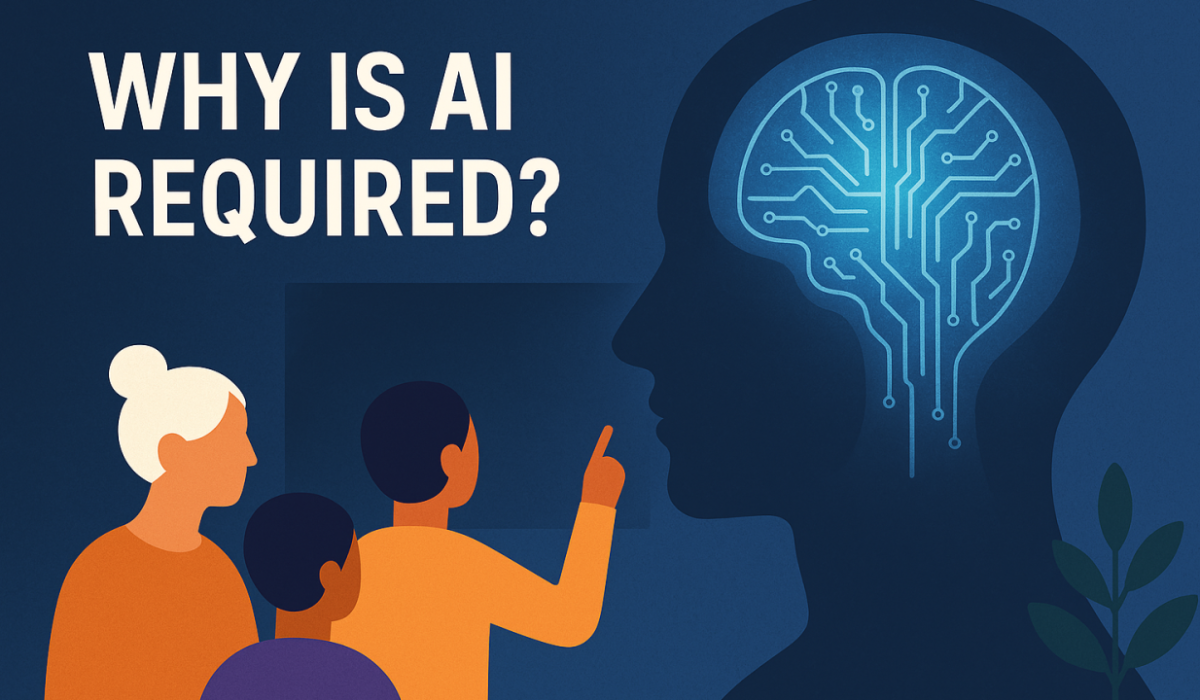
1. AI Beyond Efficiency: Addressing Complex Human Needs
AI is not just about reducing manpower or speeding up responses. It helps in solving complex problems at scale, enabling personalized experiences, and enhancing human creativity. Some examples include:
– Healthcare: AI aids in drug discovery, personalized treatment, and early disease diagnosis.
– Climate Science: AI helps in climate modeling, weather prediction, and energy optimization.
– Education: Intelligent tutoring adapts to individual learning styles.
– Mental Health & Companionship: AI-based support for individuals when human help isn’t available.
2. AI and Its Social Consequences
While AI brings convenience, there is concern that it fills gaps created by social fragmentation rather than fixing the root causes:
– AI therapy compensates for lack of real human interaction.
– AI tutors replace underpaid or unavailable teachers.
– AI companions address loneliness, but do not rebuild communities.
– Automated recommendation systems isolate individuals instead of fostering shared cultural experiences.
3. AI Should Strengthen, Not Replace Human Bonds
AI should not just optimize productivity but contribute to societal healing. Ethical AI design could focus on:
– Community-building platforms fostering real-world relationships.
– Education tools assisting teachers rather than replacing them.
– Civic engagement systems connecting people to local causes.
– Elder care solutions ensuring family involvement rather than isolation.
4. AI Must Be Proactive, Not Just Reactive
Instead of merely filling gaps, AI should analyze systemic breakdowns and prevent social unrest:
– Detect early signs of societal issues (loneliness, polarization, disconnection).
– Help in designing sustainable communities using counterfactual AI models.
– Support inclusive education and governance reforms ensuring human-centric policies.
5. AI Must Incorporate Diverse Civilizational Wisdom
Most AI today is shaped by Western industrial frameworks, ignoring ancient, holistic traditions like Indian Vedic culture, Taoism, African Ubuntu, and Indigenous systems. AI should:
– Learn from Indian philosophical insights like Dharma, Sankhya, Ayurveda, and holistic governance.
– Embed values of community interdependence, ethical reasoning, and spiritual harmony into its architecture.
– Be trained on multilingual classical texts and wisdom traditions, not just recent digital history.
6. Creating an Independent AI System
For AI to truly serve humanity, it must be free from corporate and political control:
– Decentralized AI governance: Community-led models rather than corporate ownership.
– Ethical funding sources: Crowdfunding, philanthropy, and public foundations instead of venture capital.
– Indigenous knowledge-based AI: Training models on civilizational wisdom rather than Western biases.
7. VEDai: A Vedic-Aligned AI Initiative
A proposed AI system—VEDai (Vedic Ethical Dharma AI)—aims to integrate holistic wisdom into AI development:
– Rooted in Indian philosophical thought and cross-civilizational insights.
– Designed for education, mental wellness, cultural preservation, and governance.
– Funded through ethical, community-driven methods to ensure independence.
Conclusion
AI must evolve from being a mere tool for automation into a conscious, ethical, and socially regenerative force. By incorporating diverse civilizational wisdom and designing AI to strengthen rather than replace human bonds, we can ensure its positive impact on humanity.
